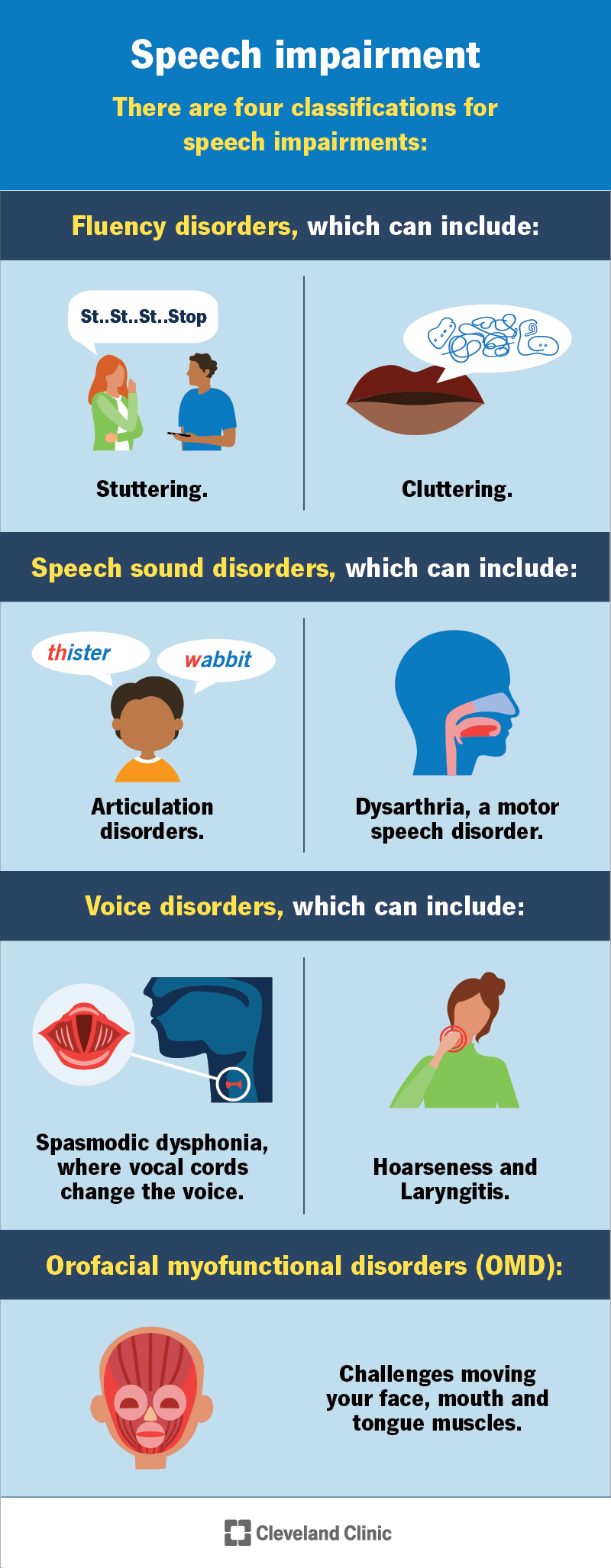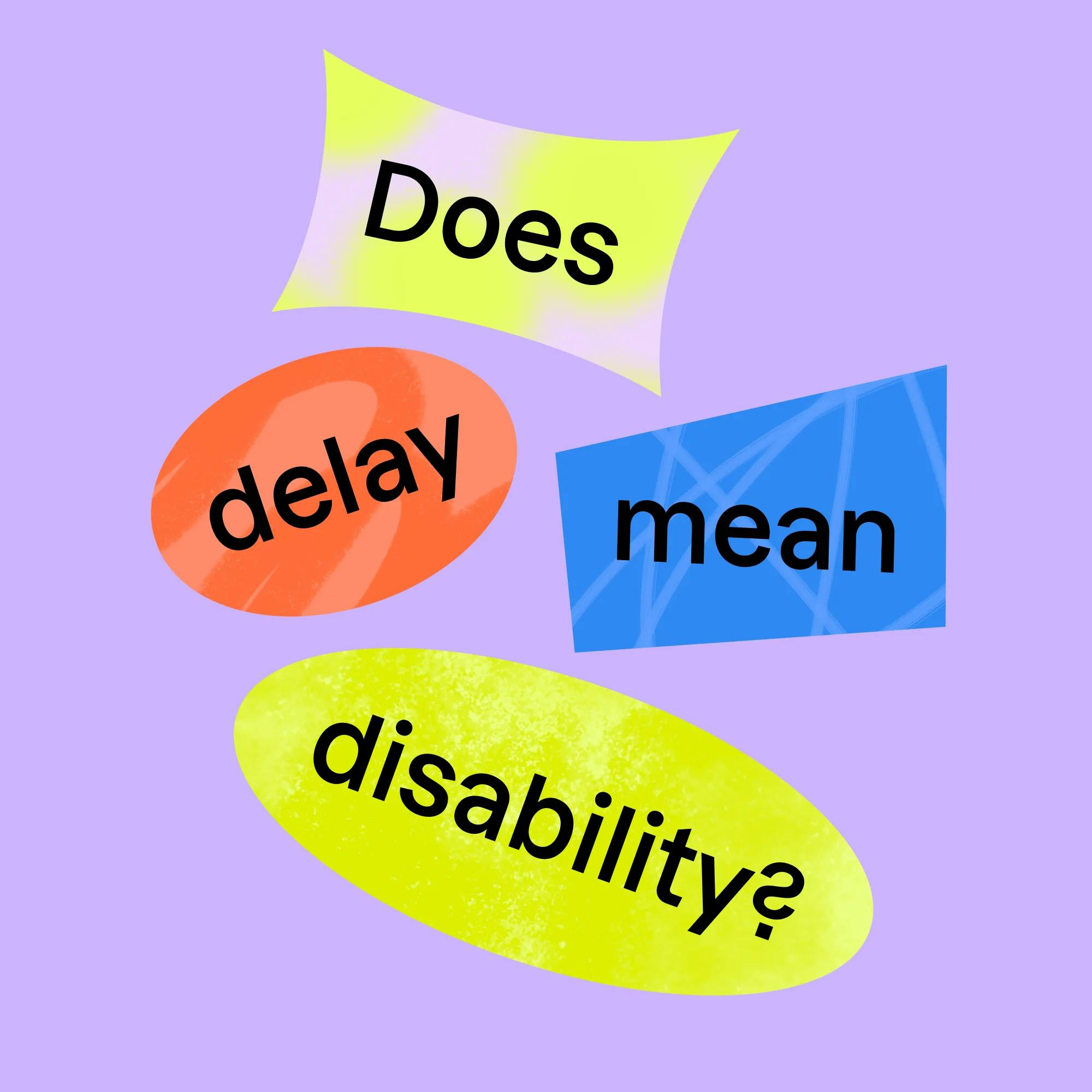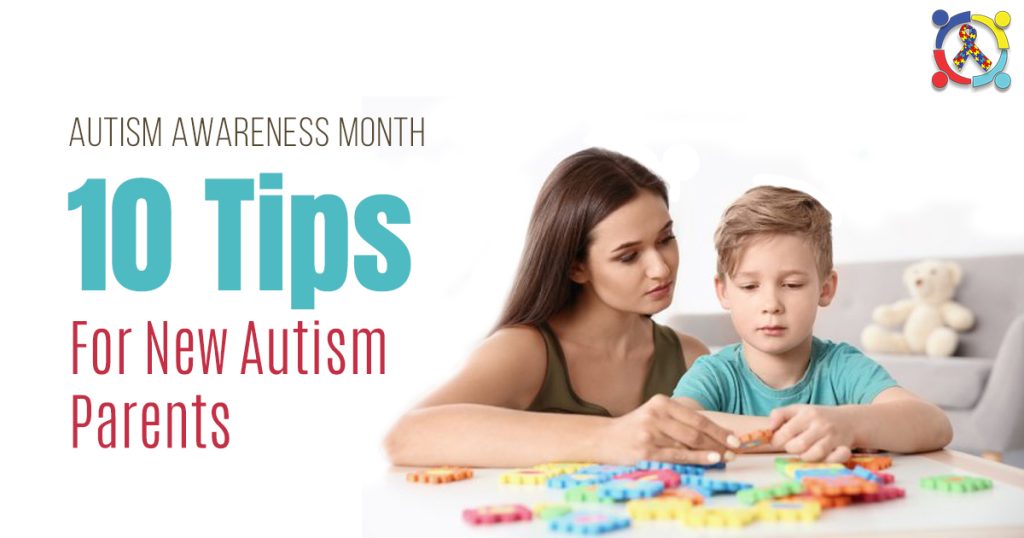You might be wondering if a speech delay in your child is something to be concerned about. Is it just a developmental hiccup, or could it be a sign of something more?
This question can weigh heavily on your mind as you watch your little one struggle to find their words. Understanding the difference between a simple delay and a more serious issue is crucial. You’re not alone in your quest for answers, and this article is here to guide you through this important topic.
Discover the insights and expert advice you need to make informed decisions about your child’s speech development. Stay with us as we unravel the complexities of speech delays and help you find clarity and peace of mind.

Credit: my.clevelandclinic.org
Defining Speech Delay
Speech delay involves late development in speaking skills. It may raise concerns about potential disabilities. Proper evaluation helps determine if it’s a developmental stage or a disability.
Defining Speech Delay Speech delay can be a perplexing issue for many parents and caregivers. It’s often difficult to determine if a child is just a “late bloomer” or if there’s something more concerning at play. Understanding what speech delay truly means is the first step in addressing it effectively. ###
Characteristics Of Speech Delay
Speech delay is characterized by a child not reaching speech milestones at the expected age. This could mean fewer spoken words, unclear speech, or even a lack of any speech at all. A friend once shared how her toddler only spoke a few words by age three. She noticed this during playdates where other kids were chatting away. Have you ever found yourself comparing your child’s speech development with their peers? Speech delay does not necessarily affect a child’s intelligence. Often, these children understand language but struggle to express themselves verbally. ###
Common Causes
There are several reasons why a speech delay might occur. Hearing loss is a primary factor, as it can hinder a child’s ability to learn sounds and words. It’s essential to get a hearing test if you suspect a delay. Neurological disorders, such as autism or cerebral palsy, can also contribute to delayed speech. Recognizing the signs early can lead to timely interventions. Environmental factors play a role too. Children exposed to limited verbal interactions may struggle with speech development. Are you engaging your child in daily conversations? Simple activities, like reading or singing, can make a significant difference. Speech delay can be a challenging journey, but understanding its characteristics and causes can empower you to seek the right help. Each child’s path is unique, and with the right support, they can thrive.
Disability Vs. Delay
Speech delays differ from disabilities. A speech delay means slower development in speaking skills. It may not mean a disability.
Understanding the distinction between a speech delay and a disability can be crucial for parents, educators, and anyone involved in child development. A speech delay refers to a child developing speech skills at a slower rate than their peers, while a disability may involve more complex challenges that require specialized support. Recognizing these differences can help ensure that children receive the right assistance at the right time.
Understanding Disabilities
A disability often involves a long-term physical, mental, or sensory impairment that can affect daily activities. These might include conditions like autism, cerebral palsy, or Down syndrome. Disabilities can require ongoing support and intervention. Imagine a child with autism who struggles with both speech and social interaction. This child may need comprehensive therapy, including speech therapy, occupational therapy, and behavioral interventions. It’s important to remember that each disability is unique. The level of support needed will vary from one individual to another.
Differences Between Delay And Disability
A speech delay, on the other hand, might be temporary and can often be addressed with targeted interventions. Many children with speech delays catch up with their peers after receiving support like speech therapy. Think of a toddler who isn’t speaking as much as other children their age. With speech therapy, they might show significant improvement in a few months. The key difference lies in the severity and persistence of the condition. Delays often resolve over time, while disabilities might require long-term strategies. Have you ever wondered if a child’s speech delay is a sign of a deeper issue? It’s essential to observe their overall development, including social and cognitive skills. Understanding the differences can empower you to seek the right support. You can ensure that your child has every opportunity to thrive, whether they are experiencing a delay or living with a disability.
Impact On Development
Speech delays can impact a child’s development in many ways. This condition may affect how children interact with their surroundings. Understanding these effects is crucial for parents and educators.
Social And Emotional Effects
Children with speech delays might face challenges in social settings. They may struggle to express their thoughts or emotions. This difficulty can lead to frustration and isolation. Social interactions are essential for building relationships. Lack of communication skills can hinder forming friendships. Children may feel misunderstood or ignored, affecting their confidence. Supporting them in social situations is vital for their emotional growth.
Cognitive Implications
Cognitive development is closely linked to speech abilities. Language helps in processing and understanding information. A delay might slow down this cognitive process. Children may have trouble following instructions or learning new concepts. Their ability to solve problems could be affected. Speech delays might also influence memory and attention span. Early intervention can help mitigate these cognitive challenges. Encouraging communication through games or activities can support development.

Credit: www.expressable.com
Assessment And Diagnosis
Speech delay in children raises questions about its classification as a disability. Early assessment and diagnosis help determine underlying causes, guiding effective interventions. Understanding this distinction is crucial for parents and educators.
Speech delay can be puzzling for parents, often leading to questions about its impact on a child’s development. Understanding how speech delay is assessed and diagnosed can shed light on whether it qualifies as a disability. This process involves a comprehensive evaluation, often aided by professionals who specialize in speech and language disorders. Let’s delve deeper into how this assessment is conducted and what role various experts play in it.
Diagnostic Criteria
Identifying a speech delay requires meeting specific diagnostic criteria. These criteria help professionals determine if a child’s speech development is slower than expected for their age. Speech milestones vary, but there are general benchmarks. For instance, a child should start using words around their first birthday and form simple sentences by age two. If these milestones aren’t met, it might be time for an evaluation. Consider if your child struggles to make sounds or has difficulty understanding simple instructions. These are signs that could prompt further investigation.
Role Of Professionals
Professionals like speech-language pathologists play a crucial role in diagnosing speech delays. They use tools and tests to assess speech and language abilities. These experts observe how a child communicates in different settings, both verbally and non-verbally. They might use games or storytelling to engage the child and gather insights into their speech patterns. A thorough assessment includes collaborating with other professionals, like pediatricians or psychologists. This teamwork ensures a holistic understanding of the child’s needs. It’s not just about identifying the delay; it’s about understanding how it affects the child’s daily life. Have you ever wondered how early intervention might change the trajectory of a child’s development? Timely diagnosis can lead to targeted strategies that support your child in overcoming challenges. It’s about empowering them to communicate more effectively and confidently.
Treatment Options
Understanding treatment options for speech delay is crucial for effective intervention. Parents often wonder how best to support their child’s communication skills. There are several paths to explore. Each offers unique benefits tailored to individual needs. Knowing these options can empower families to make informed choices.
Speech Therapy
Speech therapy is a common method for addressing speech delay. Therapists work with children to improve articulation and language skills. Sessions often include exercises and activities. These help enhance vocabulary and sentence structure. Therapists also focus on building confidence in communication. Regular practice can lead to significant progress. Parents are encouraged to be involved. This support can motivate children and reinforce learning.
Alternative Interventions
Alternative interventions can complement traditional therapy. One option is music therapy. This uses rhythm and melody to engage children. It can boost language development and improve listening skills. Another option is play-based learning. Activities like storytelling and role-play encourage speech. They provide a relaxed environment for expression. Some families explore sign language. It offers a communication tool while speech develops. Each alternative aims to support and enrich speech therapy efforts.

Credit: www.expressable.com
Parental Support
Parental support plays a vital role in addressing speech delays. Parents can create a nurturing environment. This helps children feel secure and understood. Being patient and encouraging can make a big difference. It’s important to celebrate small achievements. This boosts the child’s confidence and motivation. Parents should also seek guidance. Professionals can provide valuable insights and tools.
Strategies For Home Environment
A supportive home environment is crucial for speech development. Engage your child in daily conversations. Use clear and simple words. Encourage your child to express themselves. Ask open-ended questions that need more than yes or no. Read stories together. Discuss the pictures and characters. This enhances vocabulary and comprehension. Create a routine that includes play. Playtime is a great opportunity for learning new words. Limit screen time. Instead, focus on interactive activities. These strategies foster a positive atmosphere.
Resources For Families
Families can access various resources to support speech development. Speech therapists offer personalized guidance and exercises. They provide strategies tailored to your child’s needs. Online platforms host valuable materials. These include videos and articles on speech development. Support groups connect families with similar experiences. Sharing stories and advice helps families feel less isolated. Libraries often offer books and materials on speech therapy. These resources empower parents with knowledge and tools. Consider reaching out to local community centers. They may provide workshops and classes.
Prevention And Early Intervention
Speech delays can affect a child’s development. Recognizing these delays early is crucial. Early intervention can help improve communication skills. It can also boost confidence and social interaction. Parents and caregivers play a vital role. They can observe changes and seek help quickly. This proactive approach can make a significant difference.
Importance Of Early Detection
Early detection of speech delay is essential. It allows for timely intervention. Identifying speech delay early can prevent further issues. It can help avoid learning difficulties. Parents should monitor their child’s speech milestones. They should consult professionals if there are concerns. Early action can lead to better outcomes.
Tips For Encouraging Speech Development
Engage your child in conversation daily. Talk about everyday activities. Use simple words and sentences. Encourage your child to repeat words. Read books together often. Point out pictures and ask questions. Singing songs can also be beneficial. It makes learning words fun. Limit screen time to encourage more interaction. Praise your child’s efforts in communication.
Frequently Asked Questions
Can You Get Disability For Speech Delay?
Yes, you can qualify for disability benefits for speech delay. Eligibility depends on the severity and impact on daily activities. Consult with a healthcare professional and consider applying through the Social Security Administration for evaluation.
Does Speech Delay Mean Learning Disability?
Speech delay doesn’t always indicate a learning disability. Some children catch up with age and support. Consult a specialist for accurate diagnosis and guidance. Early intervention can help improve outcomes.
What Is The Cause Of Speech Delay?
Speech delay can be caused by hearing issues, developmental disorders, lack of stimulation, or genetics. It might result from autism, brain injuries, or oral-motor problems affecting speech muscles. Early intervention and assessment are crucial for addressing and improving speech development in affected children.
What Is The Difference Between Speech Delay And Autism?
Speech delay involves difficulty with verbal communication skills. Autism affects social interaction, communication, and behavior patterns. Both require professional diagnosis.
Conclusion
Speech delays can impact a child’s communication skills. Understanding the causes helps. Early intervention is key to progress. Professionals can guide tailored strategies. Parents should stay informed and patient. Encouraging communication at home is beneficial. Every child develops at their own pace.
It’s crucial to stay positive and supportive. Always seek expert advice if concerned. Speech therapy might be helpful. This journey can be challenging but rewarding. Trust the process and celebrate small wins. Remember, each child’s journey is unique. Patience and persistence make a difference.

